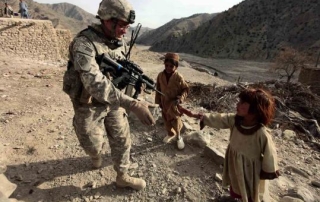Still Thinking about the Unthinkable: Maintaining Nuclear Stability through Times of Transition
Any reduction of the nation’s nuclear arsenal will have consequences, both direct and ancillary. Before the U.S. moves too far in shrinking nuclear stockpiles, many circumstances will need to be carefully evaluated. The following developments would deserve particular attention: foreign force modernizations, especially those which might signify a waning of American technological superiority; the re-emergence of confrontational strategies by countries like China and Russia; nuclear proliferation activities not justified by credible civilian applications; and the strengthening of international terror networks directed against the U.S. and its allies.
The Fallout from Libya: Al Qaeda in Africa
Bureaucracy Does its Thing: US Performance in Afghanistan
Rebuilding Iraq: What worked? What Didn’t? What Next?
India, Pakistan and Democracy: A Puzzle Solved?
Load More Programs




